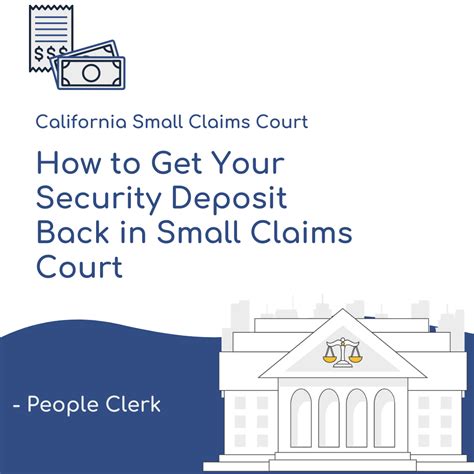California law provides specific guidelines for security deposits, outlining the rights and responsibilities of both landlords and tenants. Understanding these regulations is crucial for navigating the rental market effectively. The primary laws governing security deposits in California are found in the California Civil Code, particularly in sections 1950.5 and 1940-1940.15.
Limits on Security Deposits
In California, there is a limit on the amount a landlord can charge for a security deposit. As of the last update, a landlord can charge a maximum of two months’ rent for an unfurnished rental unit and three months’ rent for a furnished rental unit. This limit applies to the total amount collected, including any pet deposits, but excluding the first month’s rent.
Allowed Uses of Security Deposits
Security deposits are intended to protect landlords from financial losses due to a tenant’s failure to fulfill their lease obligations. In California, landlords can use the security deposit to cover:
- Unpaid rent: Any rent that the tenant owes at the end of the tenancy.
- Repair of damages: Damage to the rental unit beyond normal wear and tear. This can include holes in the walls, broken windows, or any other damage that requires repair.
- Cleaning: Excessive dirt or filth that requires professional cleaning.
- Restoration to original condition: Changes made by the tenant that were not authorized by the landlord, which need to be restored.
Return of Security Deposits
Upon moving out, tenants are entitled to have their security deposit returned within a specific timeframe, provided they have fulfilled their obligations under the lease. The process for returning security deposits in California involves several key steps:
- Notification: Before moving out, the tenant should provide the landlord with written notice of their intention to vacate the premises, as required by the lease or by California law. This notice period can vary but is typically 30 or 60 days.
- Walk-through Inspection: California law allows but does not require a walk-through inspection with the landlord to identify any damages or issues that could result in deductions from the security deposit. This can be a valuable opportunity for tenants to ensure they understand what condition the rental unit needs to be in to avoid deductions.
- Itemized Statement: After the tenant moves out, the landlord must provide an itemized statement along with any remaining balance of the security deposit within 21 days. This statement must detail the deductions made and include documentation or receipts for any repairs or cleaning.
Disputes Over Security Deposits
If a tenant disputes the deductions made from their security deposit, they can initiate a small claims court action against the landlord. It is essential for tenants to keep detailed records, including photos, videos, and written descriptions of the rental unit’s condition at move-in and move-out, as these can serve as critical evidence in any dispute.
Tenant Protections
California law offers several protections to tenants regarding security deposits:
- Interest on Deposits: Some cities in California require landlords to pay interest on security deposits, but this is not a statewide requirement.
- Banking Requirements: Landlords are not required to put security deposits in a separate bank account, but they must comply with specific record-keeping requirements.
- Security Deposit Receipts: While not mandatory, providing a receipt for the security deposit can help avoid disputes by serving as proof of payment.
Best Practices for Tenants and Landlords
To avoid disputes and ensure a smooth transition at the end of a tenancy, both tenants and landlords should:
- Document Everything: Keep a detailed record of the rental unit’s condition and any communications regarding the security deposit.
- Conduct a Walk-through Inspection: This can help identify any issues that need to be addressed before the tenant moves out.
- Understand the Law: Familiarize yourself with California’s security deposit laws to know your rights and responsibilities.
By understanding and complying with California’s security deposit laws, tenants and landlords can navigate the rental process more effectively and reduce the risk of disputes over security deposits.



